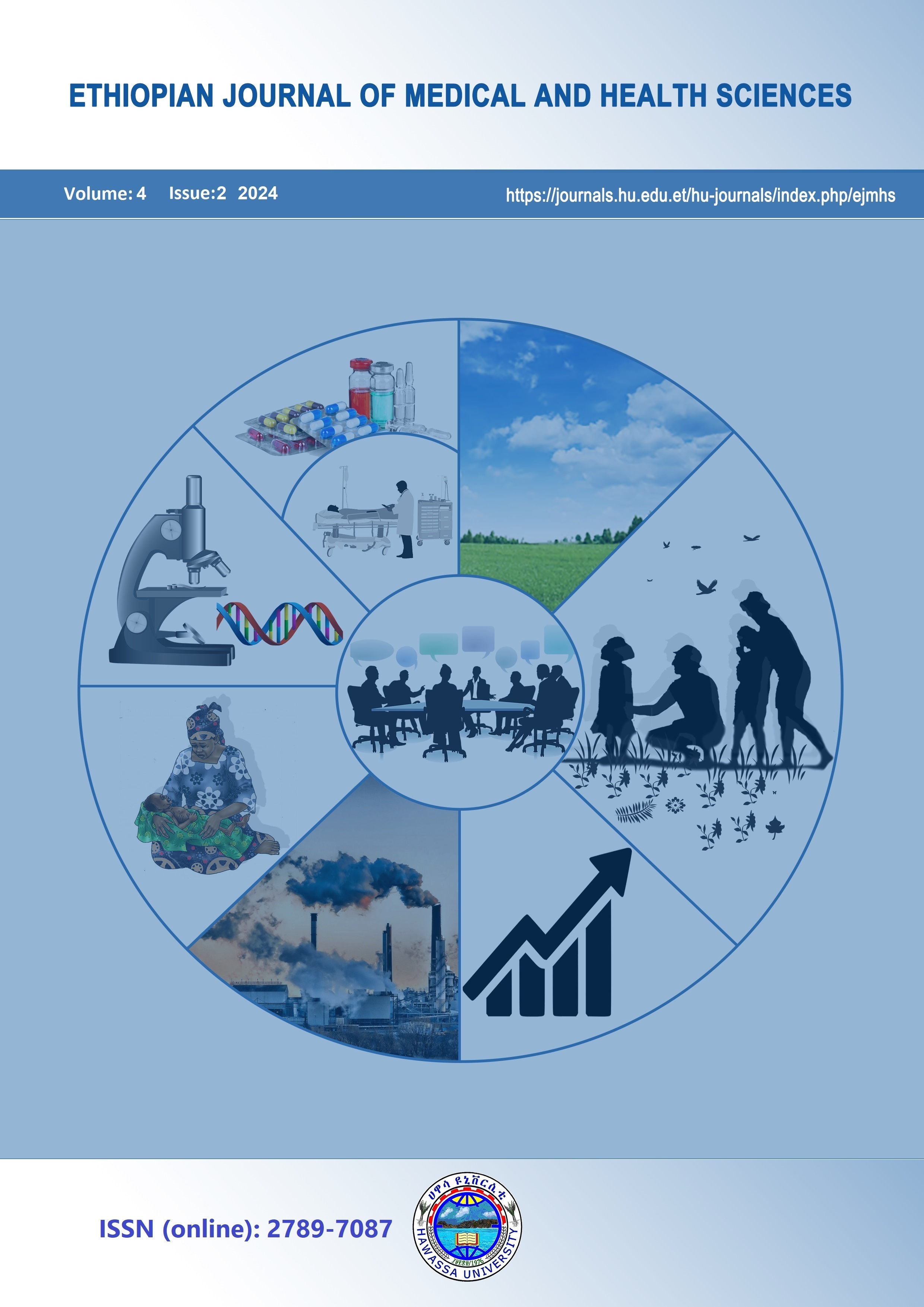Clinical outcomes and associated factors of acute poisoning among patients admitted to Hawassa University Comprehensive specialized Hospital, Sidama Regional State, Ethiopia
DOI:
https://doi.org/10.82127/6wgn7c70Abstract
Background: Acute poisoning is a global public health issue and a medical emergency that occurs when someone is exposed to a harmful substance, often within a short time. It is a frequent cause of emergency room visits and can result in serious illness or death. In Ethiopia, the absence of a dedicated toxicology center makes it harder to treat such cases effectively. This study aimed to assess the clinical outcomes and key factors associated with acute poisoning among patients admitted to the Emergency Department of Hawassa University Comprehensive Specialized Hospital (HUCSH), Hawassa, Ethiopia.
Methods: We conducted a cross-sectional study using Hospital records. Data were collected using a structured questionnaire and processed using SPSS version 25. Descriptive statistics were run, and the data were presented using frequency tables and figures. The bi-variable and multivariable logistic regression was used to identify the possible factors of clinical outcome, acute poisoning (recovery or death from poisoning). Finally, Adjusted Odds ratios and 95% Confidence Intervals were used to declare statistical significance.
Results: A total of 212 cases of acute poisoning were analyzed. Men made up slightly more than half of the cases (110, 51.9%), with a mean age of 22 years (standard deviation 8.2). The overall death rate was 9.4% (20 deaths) (95% CI: 6.15%–14.20%). Organophosphate chemicals were the most common and most deadly agents, responsible for 31.1% of cases. Logistic regression revealed that the presence of medical complications [AOR = 49.2, 95% CI: 18.78–128.48], age greater than 26 years [AOR = 15.46, 95% CI: 1.02–23.27.
Conclusion: Acute poisoning poses a significant risk of death. The most common causes were intentional ingestion of toxic substances, particularly organophosphates, often linked to family disputes or suicidal behavior. Factors associated with poor outcomes included longer hospital stay, presence of complications, and age over 26 years. Improving access to timely treatment, controlling the availability of toxic substances, and addressing mental health issues could significantly reduce deaths from poisoning.

